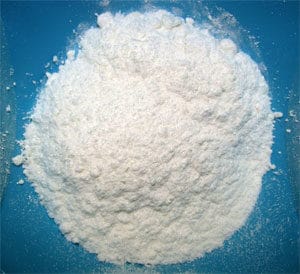The Strong Defense
You Deserve
Make Sure You’re Up To Snuff On Florida’s Cocaine Trafficking Laws

Thanks to Florida’s unique geography, the state has long been an integral part of the international drug trade. While many varieties of illegal drugs have passed through Florida over the years, none are more prevalent than cocaine. Here’s what you need to know about the laws in Florida prohibiting the possession of cocaine.
Background
South American tribes are believed to have chewed the leaves of the coca plant for at least a millennium, as mummies have been found with the leaves as part of burial offerings. Spaniards arriving on the continent initially made the practice of chewing coca leaves illegal, but the practice was soon legalized and the crops assessed a 10-percent taxation rate.
Cocaine was first isolated in 1855, and the medical field soon found uses for the chemical. Boasted of as a cure-all for a wide range of ailments, cocaine was marketed in a wide variety of forms, including as a powder, in cigarettes, and as an injectable liquid.
The first Federal law affecting cocaine was the Pure Food and Drug Act of 1906, which required disclosure of its use as an ingredient in foods and drugs, while the Harrison Narcotics Tax Act of 1914 established a regulatory and licensing framework for its distribution. Cocaine possession is currently illegal under the 1970 Controlled Substances Act as well as under several international treaties.
Basics
In Florida, the
- knowing
- sale,
- purchase,
- manufacture,
- delivery, or
- bringing into the state, or
- the knowing actual or constructive possession
- of 28 grams or more of cocaine
is a crime beyond that of drug possession and is instead charged as trafficking cocaine. Cocaine trafficking is a first degree felony in Florida, increasing the penalties from that of first degree drug possession.
Penalty
Florida’s penalties for cocaine trafficking are severe. Prison terms and fines are determined by the amount of cocaine possessed by the defendant.
- Possession of between 28 g and 200 g of cocaine is a minimum sentence of 3 years in prison and a fine of $50,000.
- Possession of between 200 g and 400 g of cocaine is a minimum of 7 years in prison and a fine of $100,000.
- Possession of between 400 g and 150 kg of cocaine is a minimum of 15 years in prison and a fine of $250,000.
- Possession of over 150 kg is a mandatory sentence of life in prison without the possibility of parole.
Capital Punishment
Florida law also allows for the death penalty in certain circumstances. If while trafficking cocaine the defendant
- intentionally killed an individual or
- counseled,
- commanded,
- induced,
- procured, or
- caused the intentional killing of an individual and
- such killing was the result; or
- the defendant’s actions led to a natural, though not inevitable, lethal result,
the sentence is that of a capital felony, which is either death or life in prison without the possibility of parole.
Drug Courts
Instead of putting some defendants through the traditional court system, the state of Florida has special “drug courts” available for some suspects. The drug courts allow defendants to avoid prison time by accepting drug treatment and checking in with probation officers, among other treatment and supervision activities.


